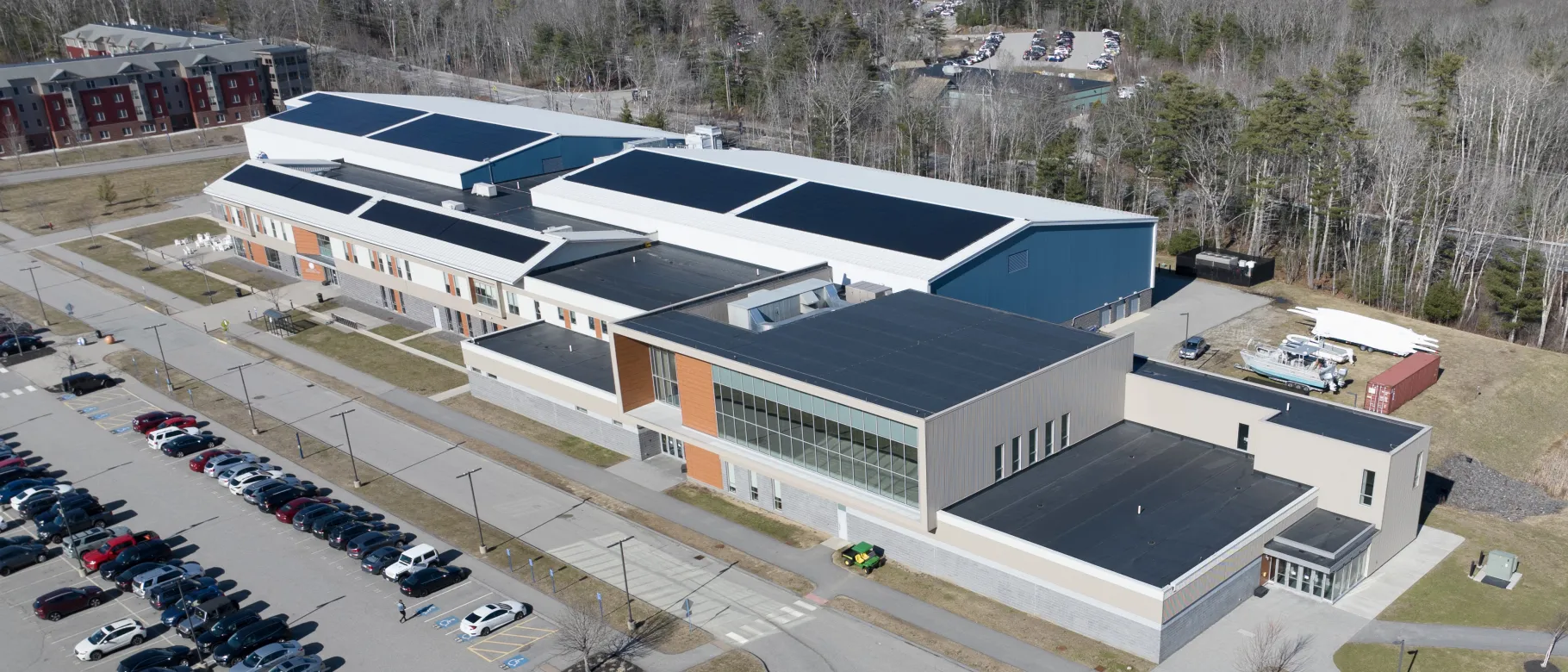New solar array at the Alfond Forum will offset 173 metric tons of carbon dioxide a year

The Harold Alfond Forum at the University of New England looks a little different these days.
The University has installed 804 solar panels atop the sports complex on its Biddeford Campus, the latest example of the University’s commitment to reducing its carbon footprint and improving planetary health.
The solar array boasts an impressive 321.6-kilowatt system projected to generate 353,531 kilowatt-hours annually — enough to power 32 homes. This initiative marks a substantial reduction in carbon emissions, with the project slated to offset the equivalent of over 173 metric tons of carbon dioxide each year.
While the power produced will be sold to the grid, the solar array is anticipated to produce the equivalent of nearly 3% of the Biddeford Campus’ annual electricity consumption, remarked Alethea Cariddi, M.Ed., associate director of sustainability at UNE.
“This project means so much to our community, and for it to be on such an important and visible building is inspiring,” Cariddi said. “The Alfond Forum solar project is a giant step for UNE. I'm looking forward to the next project.”
The Alfond Forum is home to several of the University’s health professions programs and UNE Athletics, including the ice arena used for hockey games and community activities.
In addition to the new solar panels, the Alfond Forum uses an Ice Kube refrigeration system that is 10% more efficient at making and maintaining ice than traditional equipment. As another aspect of the energy efficiency of the building, waste heat is recovered and used to heat the building.
The project builds upon UNE’s national reputation as a leader in sustainability. The University has been named one of the nation’s most environmentally responsible colleges for seven consecutive years by The Princeton Review and this year was labeled one of the country’s top 50 eco-friendly colleges.
The ranking reflects UNE’s steadfast commitment to environmental stewardship, which includes a rich history of efforts including the adoption of the University’s first Climate Action Plan in 2010, the establishment of an interdisciplinary minor in Climate Change Studies in 2015, and the transition to a carbon-reduced portfolio for the University's endowment in 2021.
In 2022, UNE signed a two-year contract to purchase Renewable Energy Certificates (RECs) for 13 of its electricity accounts, offsetting about 4,000 tons of carbon dioxide equivalents — roughly half of the University's electricity purchases — to ameliorate the impact of the University’s carbon emissions.
“UNE continues to lead by example, showcasing its dedication to environmental responsibility and creating a more sustainable future for generations to come,” Cariddi said.